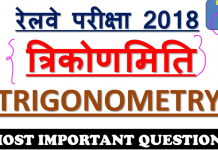Sign up free: http://gre.prepscholar.com
Erika here, with PrepScholar GRE — here today to tell you how I got an *almost* perfect GRE Score, and how you can too. If you like this video, subscribe for more great content, and check us out at gre.prepscholar.com to learn more about what PrepScholar GRE can do for you.
Before we jump into my personal strategies, it’s critical to understand how the GRE algorithm works to get a perfect score. There are 6 sections on the GRE — the essay section, 2 20-question Verbal sections, 2 20-question Quantitative sections, and one 20-question experimental section, which may be either verbal or quantitative, OR a research section. The essay section and experimental section do NOT count toward your total score. This means you can totally bomb either section and still end up with a perfect score. The essay section is recognizable and will always come first. Similarly, if you get a research section, it will come at the end of the exam and be preceded by information that indicates the section will be unscores. HOWEVER, the unscored experimental section looks just like any other Verbal or Quant section and can come at any point in order. This means that if you get an experimental section, you will not know which section is experimental and won’t count toward your score — we’ll talk more about this later in the video.
So the 2 scored Verbal and 2 scored Quant sections are the only sections that count toward your total score. The first section of each type is the same difficulty for everyone. The questions are pre-set, meaning you can skip questions and come back to them — again, more on this later. Depending on the number of questions you get right and wrong on the first section, you will get one of three second sections: an easy second section, a medium second section, and a hard second section. While the section you get will vary, like the questions in the first section, the questions in the second section are pre-set, so once again, you can skip questions and come back to them.
Now for scoring. We start with raw score for each section — the number of questions you got right. Then, your score on each section is scaled based on the difficulty of second section. In essence, answering a hard question right gets you more points than answering a medium question right, which in turn gets you more points than answering an easy question right. Finally, slight adjustments are made for to account for variations in difficulty across different versions of the test.
Now no one outside of ETS knows exactly how this raw to scaled score conversion works out, but from the data we’ve been able to gather, there isn’t much room for error. For Verbal, you *may* be able to miss a single question across the two sections and still get a perfect score. Quant is even less forgiving — it doesn’t appear that you can miss any questions and end up with a perfect score.
What does all of this indicate about my scores? I got a 170 on Verbal. Verbal is typically more forgiving than Quant — there’s a good chance that I missed one question across the two sections and still got a perfect score. Quant is less forgiving — my 169 score indicates I must have missed one question somewhere on the two scored Quant sections. However, for both Verbal and Quant, I must have scored high enough on the first section to move onto the “hard” second section. I also got a third, experimental Quant section, which I do not think went very well (more on that to come). Additionally, I completed the essay, which I got an adequate score on, but didn’t prioritize. Neither of these impacted my total score.
Onto strategy: getting a perfect GRE score relies on two things: good study and good test day strategy. We’ll start by focusing on study.
source













![CY_GATE_2019_PHYSICAL_SPECTROSCOPY_[ELECTRONIC_BASIC]_All IN ONE_[Short_Trick]_2018-19_PART_1ST - Videos](https://trends.edugorilla.com/wp-content/uploads/sites/8/2018/08/cy_gate_2019_physical_spectroscopy_electronic_basic_all-in-one_short_trick_2018-19_part_1st-218x150.jpg)


















![24 August 2018 – The Indian Express Newspaper Analysis हिंदी में – [UPSC/SSC/IBPS] Current affairs - Videos](https://trends.edugorilla.com/wp-content/uploads/sites/8/2018/08/a520-218x150.png)



